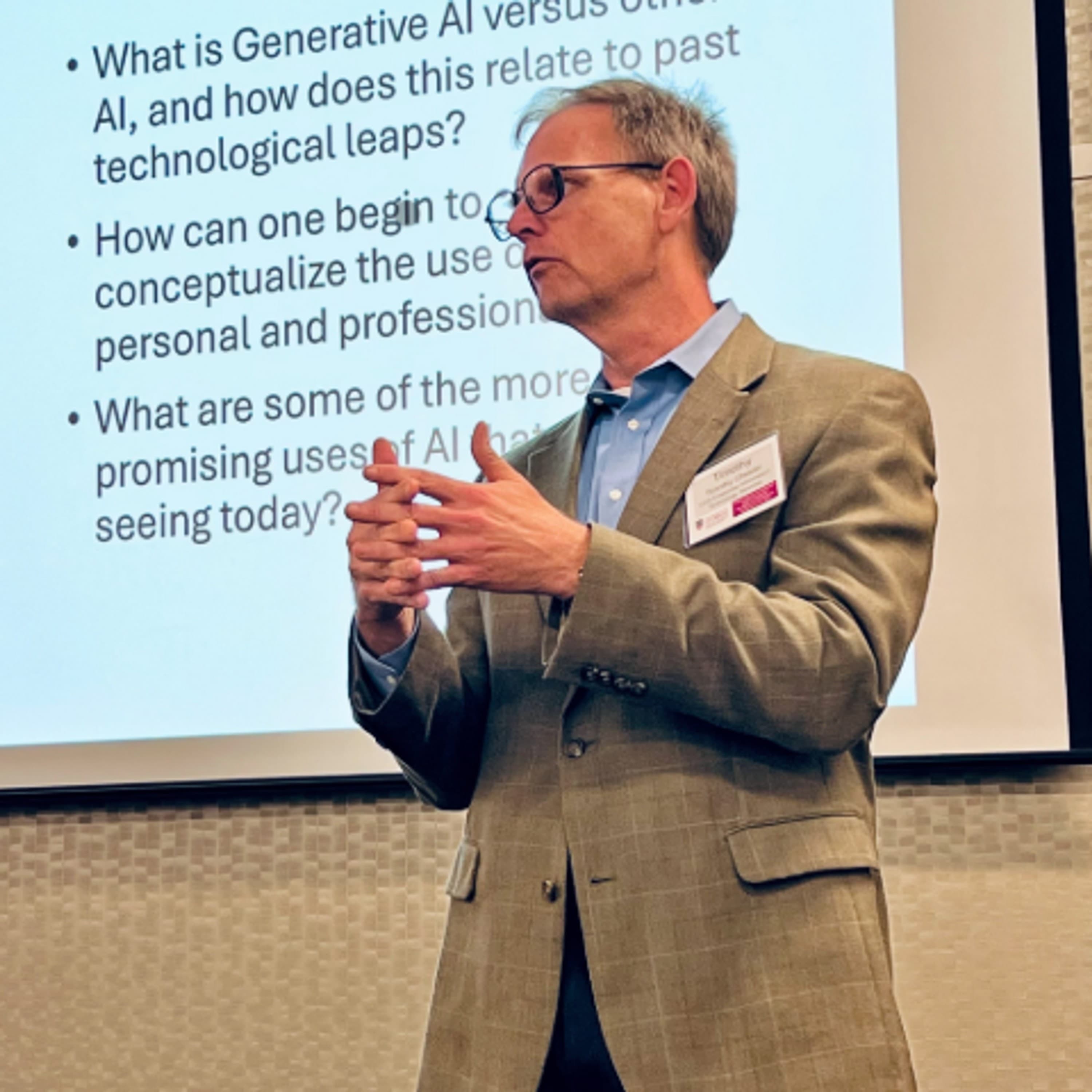Deep Dive: GenAI, Copyright, and Global Competition
In this week’s dispatch, we unravel the complex legal challenges surrounding generative AI—challenges that could shape not just the future of technology, but America’s role in leading it. From The New York Times v. OpenAI to Getty Images v. Stability AI, the courtroom battles are heating up, raising urgent questions about what counts as fair use in a GenAI-driven world. We explore what’s at stake for U.S. innovation, contrasting America’s legal gridlock with China’s more permissive approach to copyright and data use. As China accelerates GenAI development with fewer restrictions, we examine whether the U.S. can strike the right balance—protecting creators without stifling the very innovation that built Silicon Valley.
About the podcast
Technology is reshaping higher education, leadership, and the economy—but the biggest challenges aren’t just technical, they’re cultural and structural. Created by Timothy Chester, this podcast explores the real impact of AI, automation, and digital transformation on universities, work, and society. With a sociologist’s lens and decades in higher ed IT leadership, he cuts through the hype to uncover what truly matters.
Share this episode
Share with friends and family
